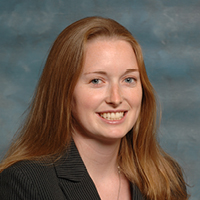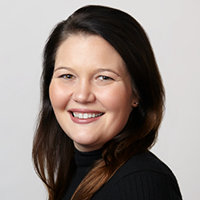The first-year Practicum is a closely mentored, team-based project in Arkansas – a state with a unique blend of urban and rural populations, a thriving business community, and a growing nonprofit sector.
Each year, first-year Clinton School students partner with public agencies, community initiatives, academic ventures, and nonprofit organizations across the state to create short and long-term impact.
Below are examples of Practicum partnerships and their impact on Arkansas communities.
For organizations who are interested in partnering with the Clinton School on a Practicum project, please see the Practicum Partnerships page.
Ronald McDonald House Charities of Arkansas
Creating a family room to serve thousands in the UAMS NICU
In 2017-18, a Clinton School Practicum team partnered with Ronald McDonald House Charities of Arkansas on an expansion study to identify area hospital needs, current capacity for RMHCA to help, and next steps for growth of its programs. Through their research, RMHCA was made aware of unmet needs at area hospitals, but particularly at UAMS. A partnership was formed that started with a meal delivery program from RMHCA and quickly expanded into a project to help in a larger way, by building a Ronald McDonald Family Room at UAMS.
In February 2020, Ronald McDonald House Charities of Arkansas unveiled its new Family Room in the NICU unit at University of Arkansas for Medical Sciences.
The Family Room is now one of three programs operated by Ronald McDonald House Charities of Arkansas (RMHCA) and serves approximately 1,000 families each year, doubling the impact of RMHCA programs. Through the Family Room program, families with babies in the NICU can remain present and involved in their child’s hospitalization and treatment, while helping them in the healing process.

Madhav Shroff (’19)
“It was rewarding to see our work with Ronald McDonald House Charities of Arkansas come to fruition with the creation of the Family Room at UAMS. Creating impact is such an important part of the Clinton School field service projects, and the chance to play a part in a project that will serve so many families in Central Arkansas is something that we will always remember and be proud of.”
Newport Economic Development Commission
Showcasing the arts in the Arkansas Delta
A team of first-year Clinton School students worked with the Newport Economic Development Commission in 2008-09 to begin plans for a Delta Visual Arts Center, ultimately leading to the creation of the Delta Visual Arts Show – an arts festival showcasing Delta-themed work.
The mission of the project was to help the NEDC establish a center that could work as a regional arts engine, drawing people into the community and providing a key component in the downtown revitalization effort of Newport. The team worked with the NEDC to create a cohesive vision among many stakeholders, identify potential funding sources, and lay the groundwork for the center’s implementation.
Now more than a decade later, the Delta Arts Festival consists of two simultaneous festivals: The Delta Visual Arts Show and the Delta Festival of Books, both held the first full weekend in June each year in downtown Newport. The festival has grown from attracting 17 artists and 180 attendees in 2009 to 200 visual artists, 40 authors, 27 concerts and 10 film screenings in 2022.

Emily Fischer (’10)
“Being first-year graduate students, new to Arkansas and the world of creative economies, we had a lot of learning to do. Through surveys, interviews and research we discovered there was tremendous untapped potential in the creative economy in Arkansas, and artists were very interested in the vision of having a space where they could create, sell and teach art … My classmates and I are very proud of being a small part of this community turning its vision into reality.”
Women’s Foundation of Arkansas
Helping Arkansas businesses build gender equity in the workplace
Working with the Women’s Foundation of Arkansas, a team of first-year Clinton School students researched and developed the Gender Equity Scorecard, an internal assessment equipping businesses in Arkansas with the ability to evaluate the current state of gender equity in their workplace. In March 2019, the first Gender Equity Award was presented by Arkansas Business to recognize the most equitable workplace in Arkansas.
The scorecard allows Arkansas businesses to evaluate the current state of gender equity in their workplaces. The Clinton School team researched models and best practices from other states and countries to help WFA create a scorecard for businesses to improve gender equity within their organization and support Arkansas women in working toward economic empowerment. The scorecard asks company leaders questions in categories ranging from financial literacy, flexibility, job skills, leadership, mentoring, and resources.

Starre Haas (’19)
“We found that this hadn’t been done in Arkansas. It’s easy to say that you’re all for gender equity. But what the score card does, it strives to change the way that businesses think … I feel like people are just very unaware that this is an ongoing issue. There have been huge strides in the development of gender equity, but there’s still a lot of work to be done.”